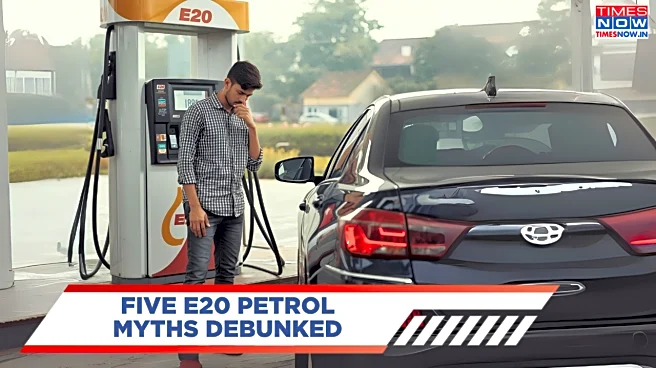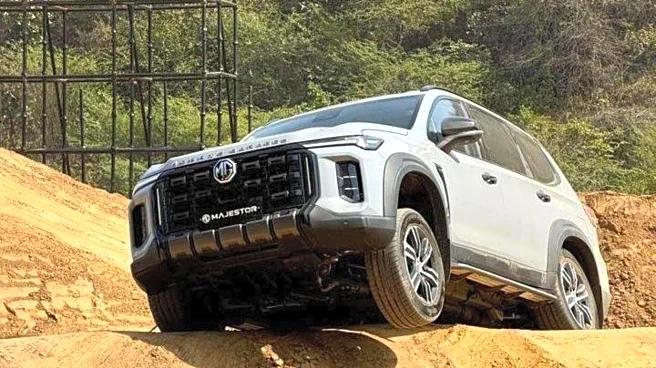If you are a car owner, the recent hype around Ethanol-blended petrol may have left you wondering if the new E20 petrol is suitable for your vehicle. Every Indian household aspires to own a car and those
who do are concerned about any ill effects that E20 petrol may have on their prized possession. However, there are several myths surrounding Ethanol-blended fuel that are spreading misinformation regarding the alternative. Here are five E20 Petrol myths that you should not consider taking seriously.
Also Read: How Much Extra Will You Pay For Royal Enfield 650cc Bikes Post GST 2.0
Myth Number 1: E20 Petrol Will Damage Older Vehicles
Before the E20 petrol rollout in 2025, the government had introduced E10 petrol back in 2023. This means that up until recently, the 'normal' petrol you had been using was also ethanol-blended up to 10 percent. Over this time period, no adverse effects were reported by vehicle users after using E10 petrol.
In terms of E20, test results show no adverse effect on older cars either. The Ministry of Petroleum and Natural Gas and the Automotive Research Association of India (ARAI) have confirmed that E20 petrol passed major engine tests and showed no adverse effects on both E10-tuned and older cars.
The tests included performance checks, up to 1 lakh kilometre endurance checks and mechanical effects on cars which were both carburetted (BS 2 or earlier) and fuel-injected. Hence, using E20 fuel is safe in both older and newer vehicles, with marginally lower fuel efficiency being the only impact, which can be resolved with better engine tuning.
Myth Number 2: E20 Petrol Increases Knocking In Older Cars
Another myth circulating the E20 petrol discussion is that it increases knocking in car engines that were made in 2017 and earlier. Contrary to the myth, ethanol instead reduces knocking in engines. This is primarily because ethanol has a high octane rating, which leads to smoother ignition of fuel inside the engine.
Myth Number 3: E20 Petrol Will Have Major Impact On Fuel Efficiency
Once again, the reality is far less severe than the sensationalised version. Government testing has confirmed that when using E20 petrol, engines that are tuned for E10 will see a 1 to 2 percent drop in fuel efficiency and a 3 to 6 percent drop in older cars, tuned for E5 or below. Once again, these effects can be mitigated in older cars by tuning them for optimum performance on E20 petrol.
Myth Number 4: E20 Causes Corrosion and Wear In Engines
Another E20-related myth suggests that the use of blended fuel leads to corrosion in the fuel system and reduces lubrication inside, leading to engine wear. On the contrary, both E10 and E20 petrol have corrosion inhibitors and lubricity additives blended within that meet BIS/OEM ethanol-tolerant standards.
Myth Number 5: Ethanol Has No Practical Benefits
This might be the most blatant myth regarding the government's shift towards ethanol blends. Ethanol-blended petrol has proven effects such as a reduction in CO2 emissions, lower expenditure on fuel imports and benefits to Indian farmers.
Ethanol has already proven to be a big deal since 2014-15. By reducing India's dependence on crude oil imports, ethanol blending has helped the country save Rs 1.4 lakh crore in foreign exchange in the last decade. When compared to unblended petrol, the greenhouse gas emissions of ethanol is estimated to be up to 65 percent less. In terms of farmer benefits, Rs 40,000 crore will be paid to farmers by the Government in 2025, facilitated by the production of E20 petrol.
So these were five myths related to E20 petrol that are more serious in perception than reality. Keep reading Times Now Auto as we bring you more facts, FAQs and myths related to the use of ethanol-blended petrol to clear all your doubts.









/images/ppid_59c68470-image-17708925279223654.webp)

/images/ppid_59c68470-image-177089257596090286.webp)
